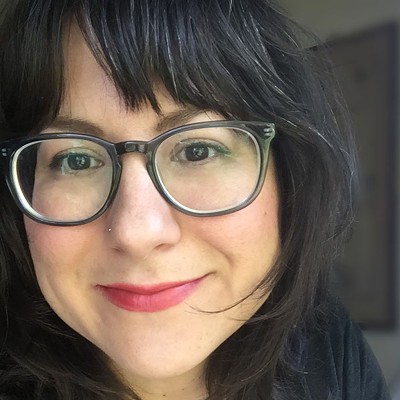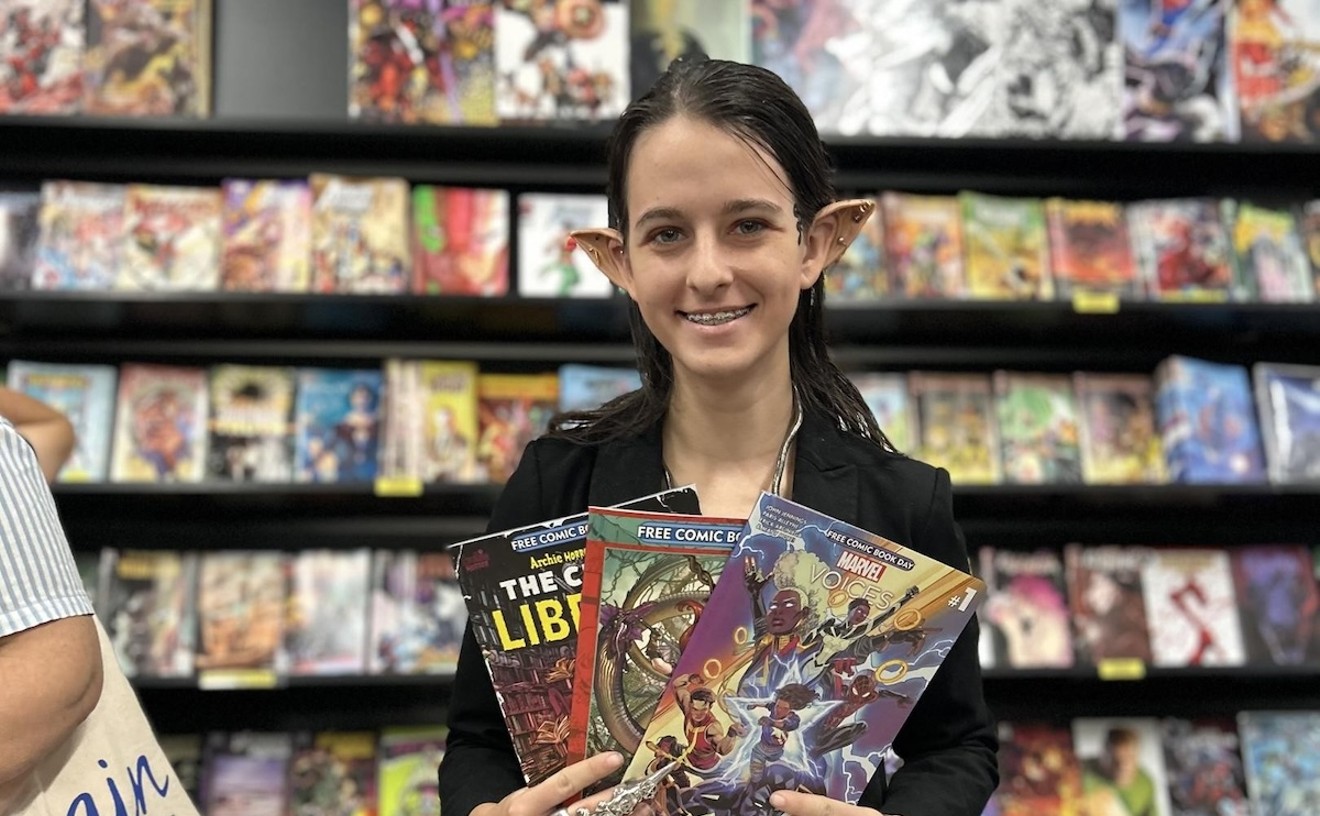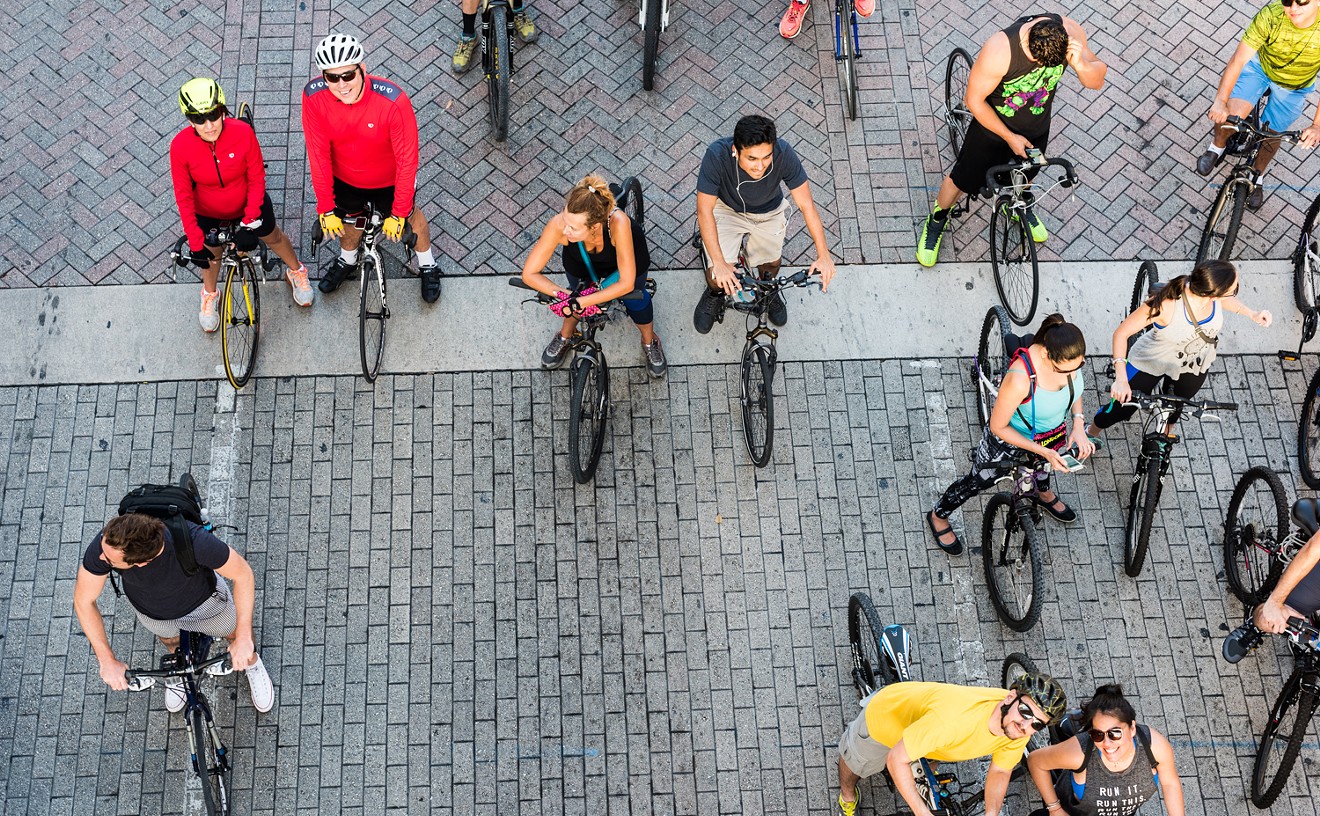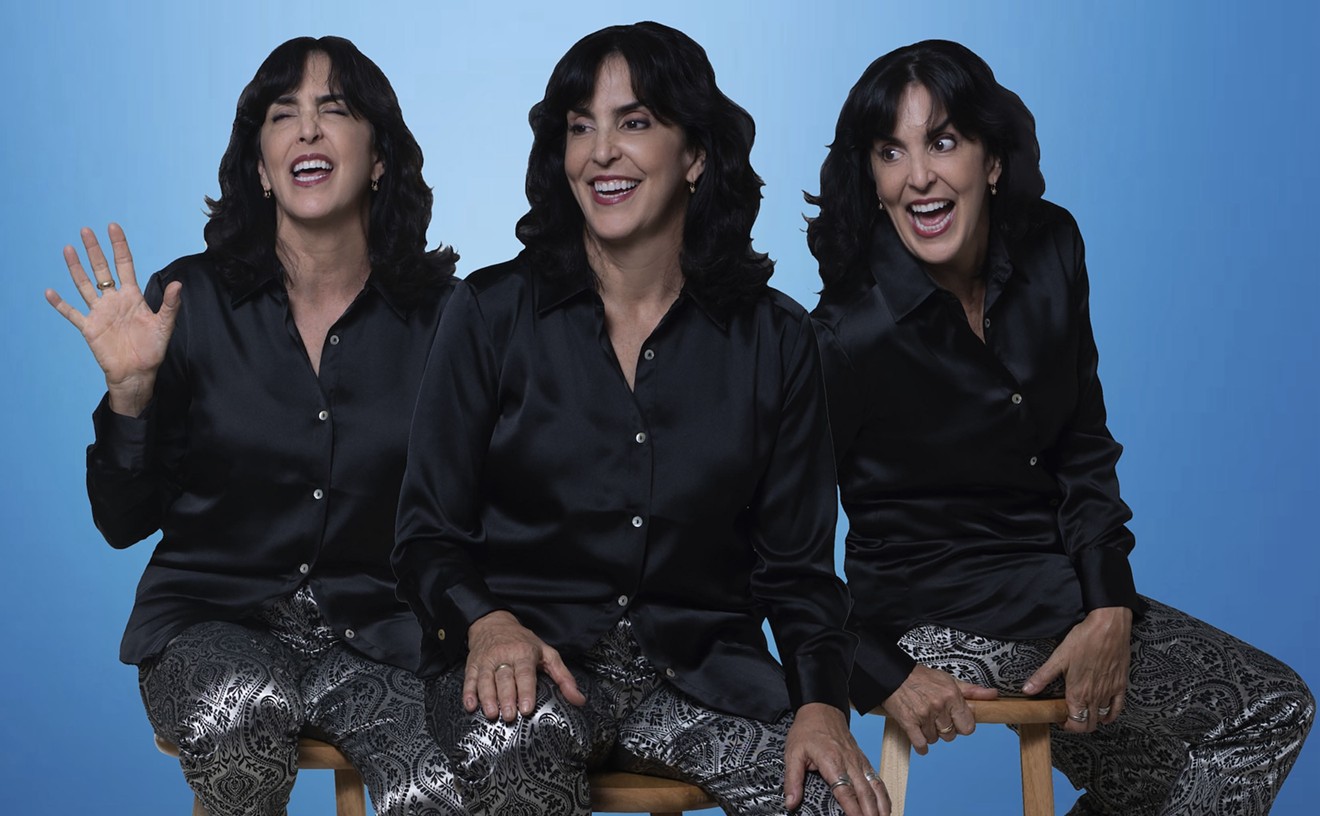In West African dance, the rhythm of the drums and the movement of the dancer work together in unison, almost as one colorful, throbbing body. Other styles, from ballet to modern, disconnect the two; dancers move to recorded music or to the sounds of live musicians playing the same notes they've practiced dozens of times. The music and the choreography happen simultaneously, but separately.
Not so in West African dance, says founder and artistic director of Delou Africa Dance Ensemble, Njeri Plato. "A dancer must understand the rhythm, because it is a form of communication. We are essentially communicating with that musician," she says, explaining the wordless language of drummer and dancer in West African performance.
"It's magical what happens onstage... The rhythm gives us all the motion," she continues. "It's always about life."
This weekend, more South Floridians will be exposed to the language of West African dance than ever before. Delou's seventh-annual, three-day African Diaspora Dance & Drum Festival of Florida has expanded to include a new venue, a gala, and a headliner, Forces of Nature Dance Theatre.
Plato, a Trinidad-born dancer and choreographer with decades of experience in her muscles, bones, and brain, is an expert in translating West African rhythms and movement to first-timers. She founded Delou Africa Dance Ensemble in Miami in 1987. Year-round, the team of about 25 volunteers offers the community a connection to West Africa with classes taught by master dancers and drummers. Delou teachers also travel the world instructing, performing, and sharing their art form. Delou is considered artist-in-residence at the Little Haiti Cultural Complex, where the group hosts the Youth Arts Initiative program, ongoing community outreach classes, an annual Kwanzaa celebration, and a spring concert. But the African Diaspora Dance & Drum Festival is the largest event Delou puts on each year.
"We choose [to focus on] African dance and drum because it is not prevalent in our community," Plato says. "It is important to preserve these rich traditions... We have bridged the gap and invite the community and tourists to come to the festival."
"Dance has no boundaries. You can dance and speak with anybody in the crowd."
tweet this
This year, the festival is growing in a big way. After years of presenting mostly Delou's own dancers, a Knight Arts Challenge prompted the group to partner with DanceAfrica. Established in the 1960s, DanceAfrica hosts the largest African heritage celebrations in the nation, in New York, Chicago, and Washington, D.C. But the festival series hadn't returned to Miami since 1997, when it held a festival at Miami Dade College Wolfson Campus.
The DanceAfrica partnership allowed Delou to add a headlining troupe, New York City's Forces of Nature, to this year's festival lineup. Forces of Nature is led by choreographer and cofounder Abdel R. Salaam, who now also heads up DanceAfrica. With famed festival network DanceAfrica onboard as a collaborator and the Knight Arts Challenge grant in hand, Delou ensured it could bring this top-tier African dance troupe to the stage. This year, the award-winning company blends traditional West African dance with forms as diverse as contemporary, ballet, hip-hop, and martial arts. "[DanceAfrica founder Dr. Chuck Davis] encouraged us to make [the festival lineup] more universal and national," Plato explains.
With a big name on the bill, Plato expects larger crowds than usual. "For the past six years, our concert has sold out at the Little Haiti Cultural Complex. That is one of the reasons we moved the concert this year to the Miramar Cultural Center, because of their seating capacity," Plato says. At the Little Haiti location, the festival will host 15 dance, drum, and musical workshops; a marketplace for vendors; a children's village complete with face painting and a Children's Trust bookbag giveaway; a drum circle; and a health fair. In Miramar, a fashion show and gala will follow the big Forces of Nature concert.
The performances planned for the African Diaspora Dance & Drum Festival aren't just about reenacting styles of dance from long ago. West African culture grows and evolves along with the diaspora, as distinct African cultures merge with one another and with the local cultures of the places where Africans were taken to live and work. As Africans adapted to foreign surroundings, they added new cultural vocabulary to their own traditions. As a result, West African music and dance performances have a unique power to elevate and communicate with more than one community, to simultaneously bridge divides and tie people to their ancestral roots.
This festival unites all of those dedicated to preserving West African culture abroad. Afro-Cuban, Haitian, West Indian, "we get them all," says Folayan Griffiths, Delou's vice president and Plato's daughter, listing some of the breakout styles, classes, and performances planned for this year.
Griffiths has witnessed firsthand the transformative power of the festival. She recalls one woman who came to the festival from Antigua and signed up for every class. "She told me she had never danced before," Griffiths explains. But after three days of workshops and performances, the first-timer told Griffiths that she had undergone an out-of-body experience while dancing. "She never realized she could move to drums like that before or even dance like that!"
The Delou VP has also felt the benefits of dance herself. When Griffiths, who is a registered nurse, was in school, she never missed a dance class. Her group study partners questioned her judgment, she says, but dancing kept her grounded. "My neurons were popping off! I felt free; I felt ready for my exam. If I didn't do it, it was really a problem for me. It was a release of energy. It's definitely really something that releases you and keeps you balanced," she says.
The addictive nature of West African dance is a theme echoed by other Delou dancers. Trinidad-born Renee Allong arrived in Miami 20 years ago and was already dancing with another organization before meeting Plato and getting hooked in her new home. She describes the power she found in the inaugural Delou-hosted festival. "The first time was really exciting for me because there were quite a few artists from Africa. And, oh my God, the music is just awesome — the xylophones, the djembe. Doing it for our community in South Florida, that was a very awesome experience. Sharing that rich tradition, also dancing with my sisters, bonding with my sisters and brothers, giving each other strength — it's nice to have that outlet."
Allong says she hopes the same benefits she feels transfer to the audience — especially at this year's expanded event.
"[The festival] is an attempt to let people understand there's such a rich tradition in everything. Making yourself feel good, knowledge, health — we see our tradition providing that to us. That's why Delou feels so passionate about bringing this every year. Most of us with the company, we have jobs that sustain us financially, but we do this for the passion. We understand that we have something really good here, and we want people to come, and we pray that we grow. All the different cultures come — black, white, Hispanic, Chinese... We want everyone to come and see that everyone can find a place.
"Dance has no boundaries," she says. "You can dance and speak with anybody in the crowd."
African Diaspora Dance & Drum Festival
Friday, August 5, through Sunday, August 7, at the Little Haiti Cultural Complex, 212 NE 59th Ter., Miami, and the Miramar Cultural Center, 2400 Civic Center Pl., Miramar. Tickets cost $35 for general admission, $20 for seniors and students, and $5 children under 2. The gala costs $25 at the door or $10 with a concert ticket. Visit adddff.delouafrica.org.











